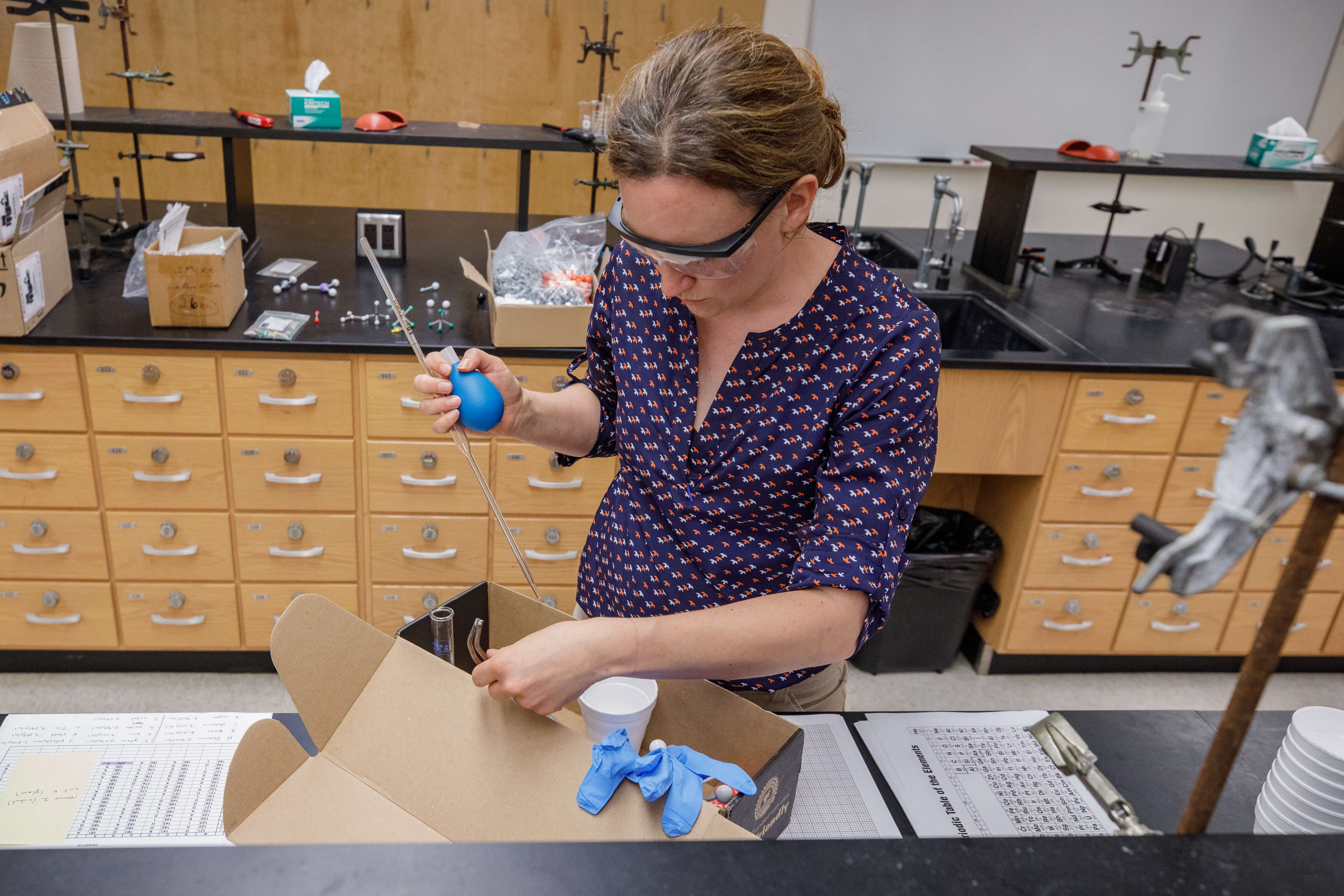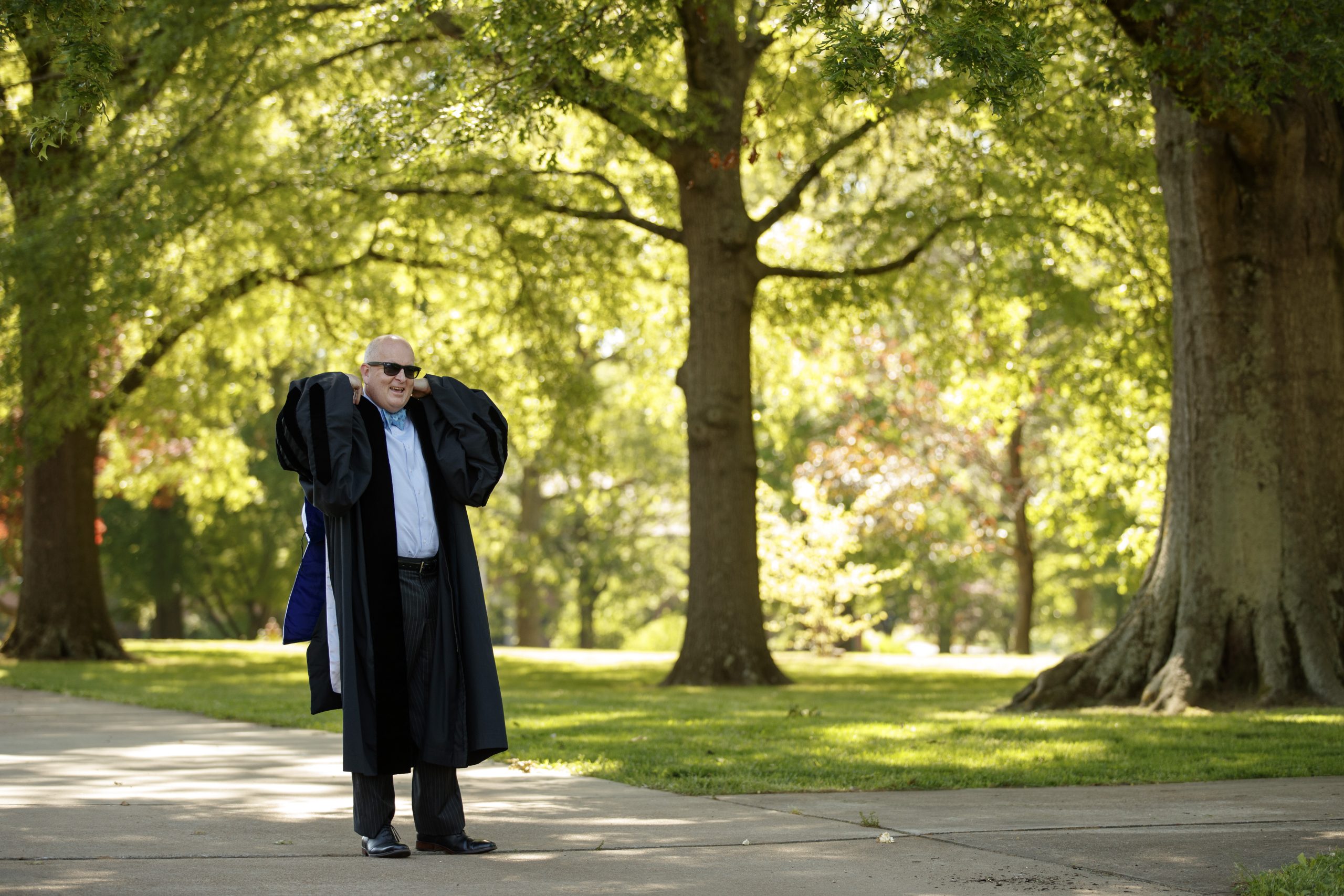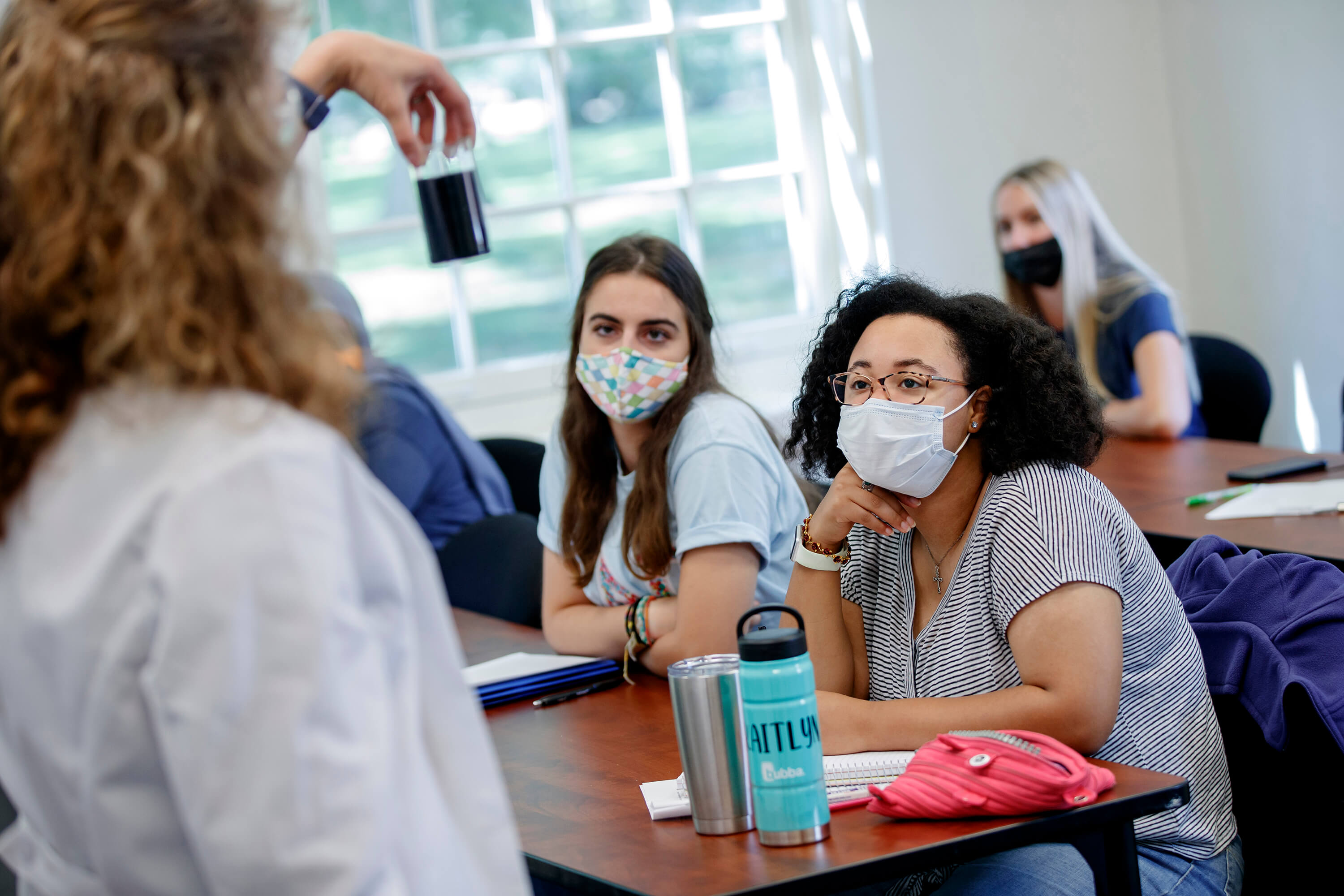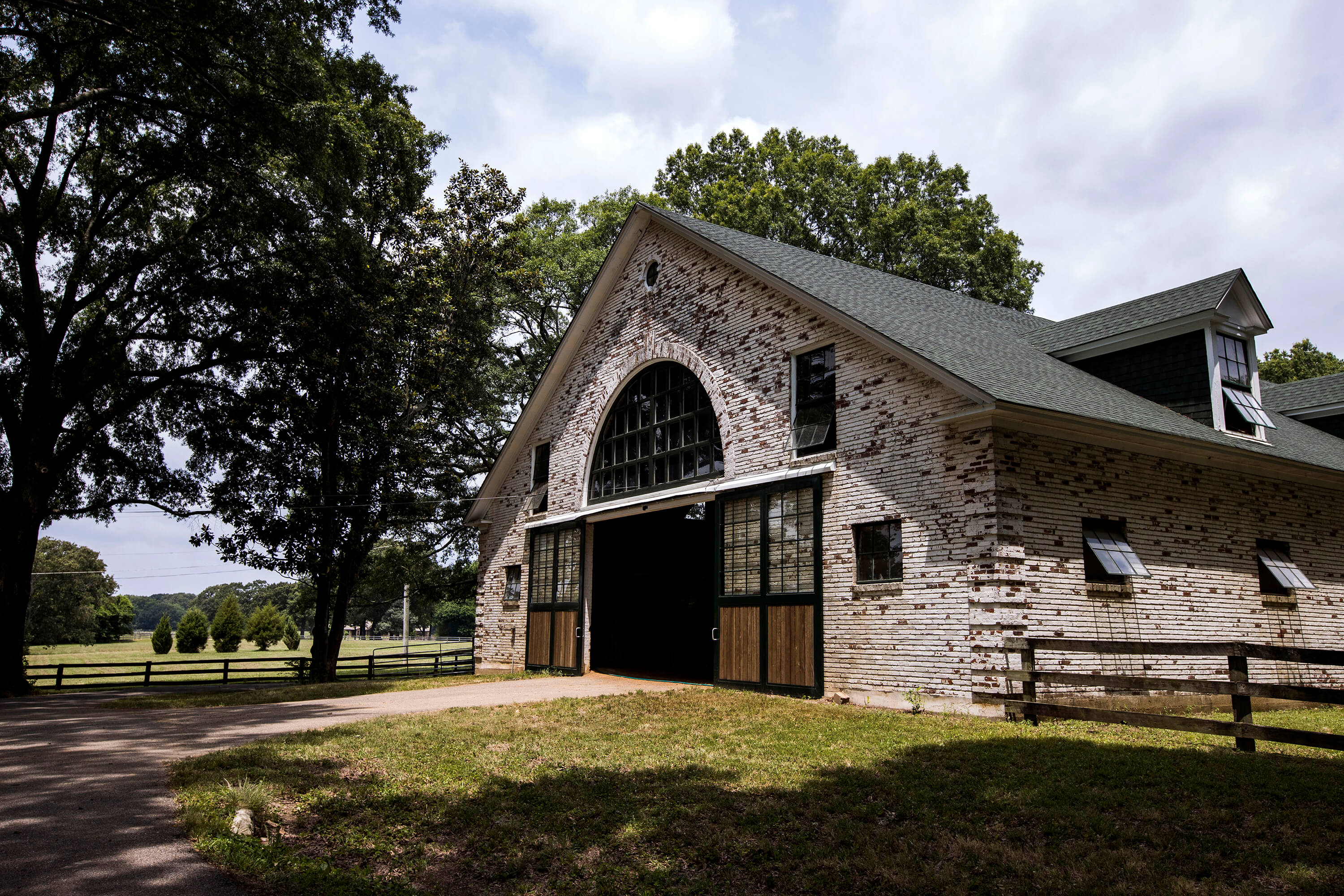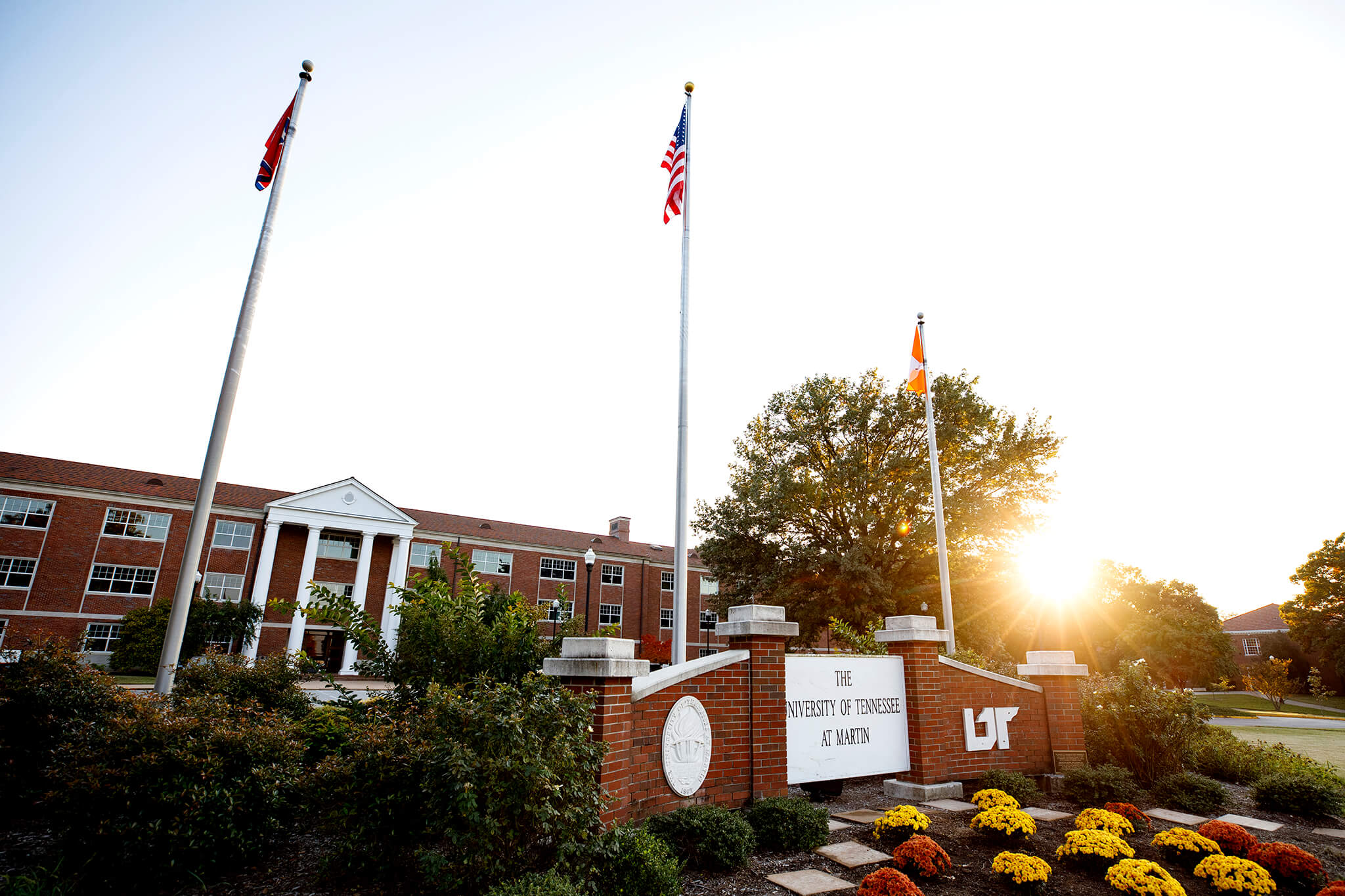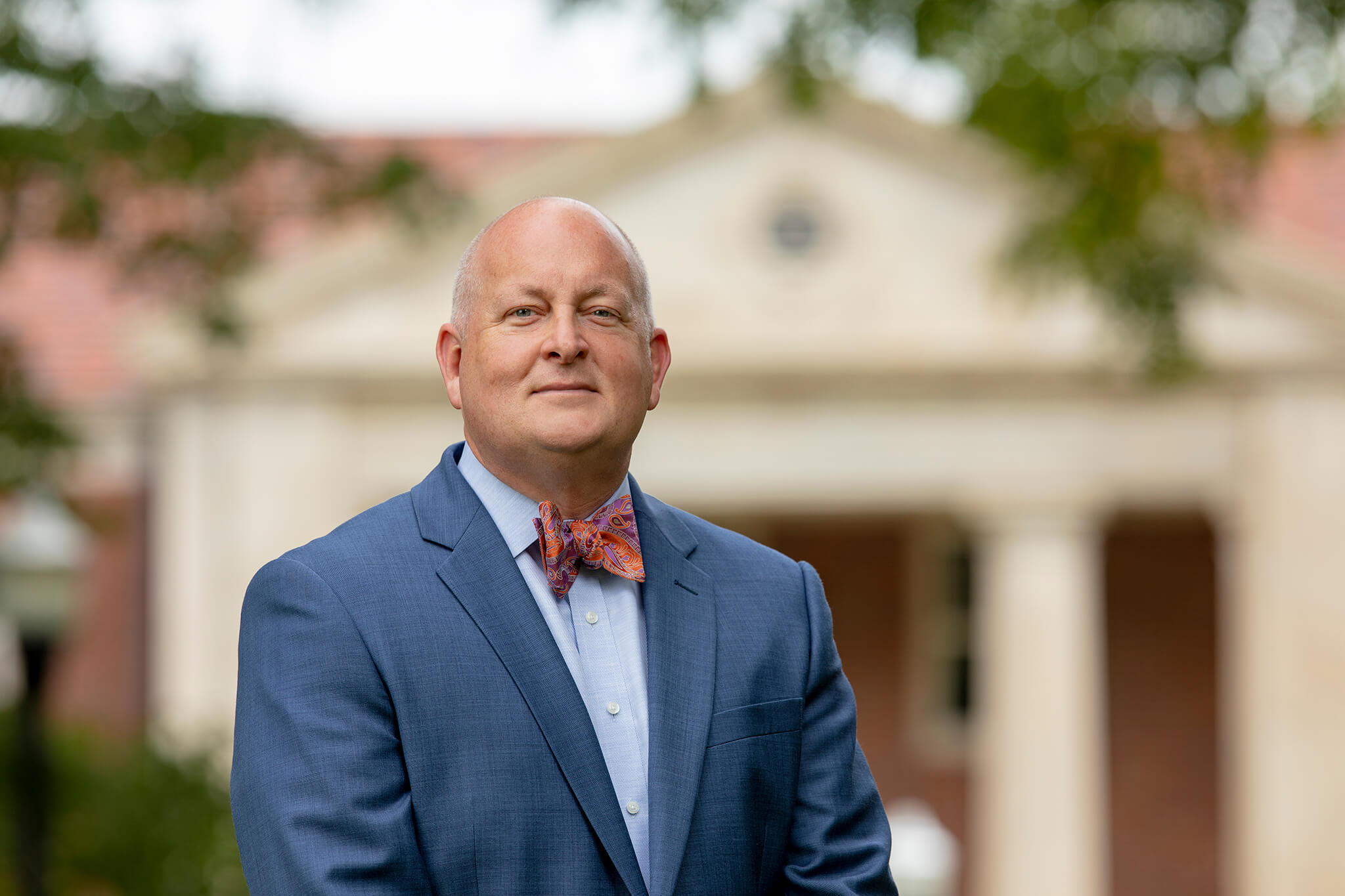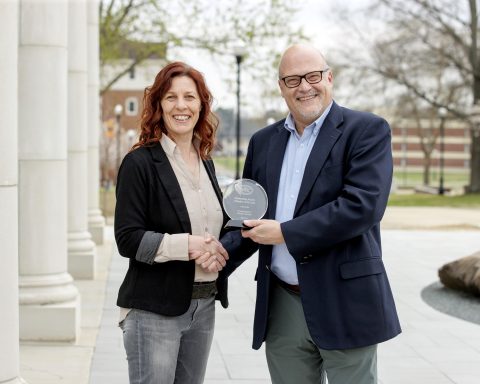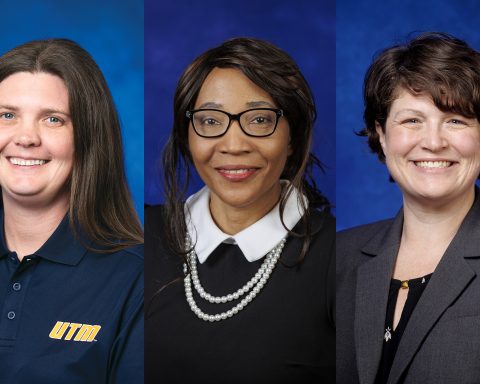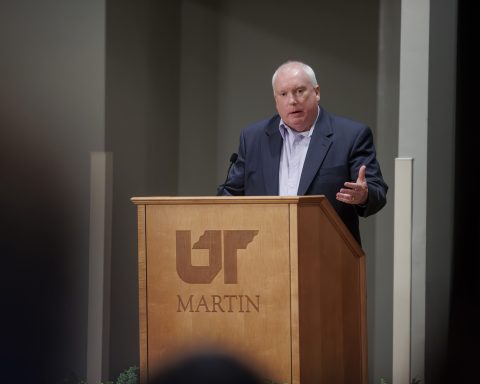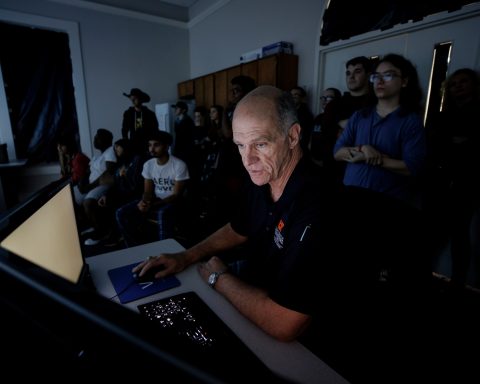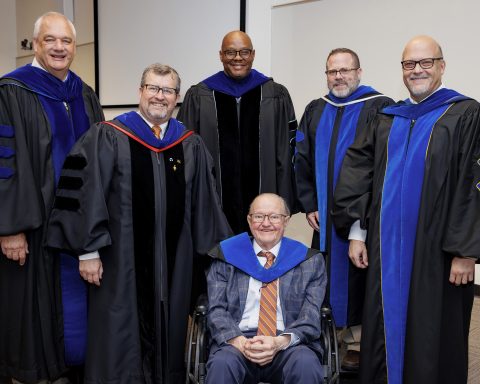As the University of Tennessee at Martin faculty members began preparing to host their summer courses online, Dr. James Smart, professor of biology, and Dr. Abigail Shelton, associate professor of chemistry, knew they needed a plan for the Biology 140 and Chemistry 121 classes in order to ensure their students received the best hands-on learning experience, even if they could not utilize the respective labs on campus.
Their solution? Create lab kits containing the materials needed for their students to safely conduct their own experiments at home to supplement the corresponding lectures. The kits include the lab components each experiment will require, such as test tubes and graduated cylinders, microscopes, balances, atom and cell models, and even a few chemicals that were approved by the Tennessee Department of Transportation to ship to each student.
“Part of what we were unwilling to compromise on with the transition to online was the hands-on tactile skills that are developed in lab,” said Shelton. “The main things that are going out in these kits are not actually chemicals; they’re glassware so the students can still work with and learn how to handle and measure with pipettes and graduated cylinders… We didn’t want to send them on with our seal of approval for the course without teaching them those tactile skills, and so, we are shipping out, for free, a very substantial amount of glassware and metal samples.”
Smart’s Biology 140 class, Foundation of Cell and Molecular Biology, will require students to prep their experiments themselves, including a trip to Walmart’s produce section. Instead of shipping groceries to his students, Smart hopes the preparation each student has to do for the experiments will encourage them to do their best.
“I’m asking them to do something that they would have had done for them: you just show up for lab and there’s all the labeled bottles of this and that made for you,” Smart said. “I think it’s fair to say that there is going to be more expected of these kids because they’re doing it on their own, but also they’re doing it on their own. So, at the end of the day, they did it. There’s no lab partner to hide behind… or somebody else’s data to get. It’s going to be their own individual ownership of it.”
The lab kits, in conjunction with TDOT’s safety regulations, were shipped out to students as they prepare for the first summer session to begin June 1. However, four local students enrolled in Biology 140 received their biology lab kits in an unusual way May 28.
Lily Little, a sophomore health and human performance major, and her brother Hagen, a junior health and human performance major, opened their front door to find UT Martin Chancellor Keith Carver waiting on their porch with their biology lab kits and a few words of encouragement as they begin the new semester.
Carver spent the morning personally delivering lab kits to their homes and enjoyed socially distanced fellowship with some UT Martin students that he hadn’t seen since March.
“I am inspired by the creativity of our lab instructors! It’s obvious that our faculty are working hard to stay connected to their students and provide innovative ways to teach them,” said Carver in an email. “I enjoyed seeing the students and the limited interactions we were able to have outside their homes! Students are the heart of UT Martin – and I loved being a part of the teaching and instruction process.”
Lily, ready for her class to begin, said “(The kit) will help me be more engaged in my class… I am a visual learner and a hands-on learner, … so with this lab kit, it will help me better understand what’s going on because I can see it right in front of me.”
Lily also said it meant a lot to her that Carver was the one to drop off their kits as they had become friends during her time at UT Martin.
While there are several experiments the students will not be able to conduct at home that they normally would in lab because of the dangerous nature of the materials, both Shelton and Smart are confident that the students in their chemistry and biology labs will learn the importance of the subjects through the labs they have provided. The students will also have online labs to replace the ones they could not do by themselves at home.
“The only way I know to do science is to ask you to be a scientist. You’re probably not going to find a cure for cancer in your own kitchen this summer, but we can also do real and meaningful things that will help kind of cement what we’re doing in lecture,” said Smart.
“A lot of their experiments are still going to be online entirely because those are the experiments that have the waste-streams or ventilation concerns, but what I also hope is the same that I would for a regular face-to-face class,” said Shelton. “They, at the end of it, don’t have to love chemistry; I don’t expect all of them to love it, but that they have an appreciation for how it surrounds them in their day-to-day life. I hope that by sending them a kit, they can practice those same skills that they would if we were face-to-face so that they are better able to do the next step.”
Both Smart and Shelton know the kits are not a cure-all solution to teaching hands-on science courses online but are hoping the trial experiment will create a precedent for how they can conduct hybrid courses if the pandemic continues.
“I’m ridiculously proud that my department chair and my dean saw the value of what we do in our (science) courses, such that they were willing to work through all of the concerns and the liability to help make this happen and to take on the potential financial constraints of it,” said Shelton. “I think that’s part of what this university is, of what we should be. We shouldn’t be compromising on what these students get to learn in the face of a pandemic. These students need to get to do good, real chemistry and that’s what we’re offering. We’re quite proud of what we’re doing.”
For more information, contact the Office of University Relations at 731-881-7615.
###

